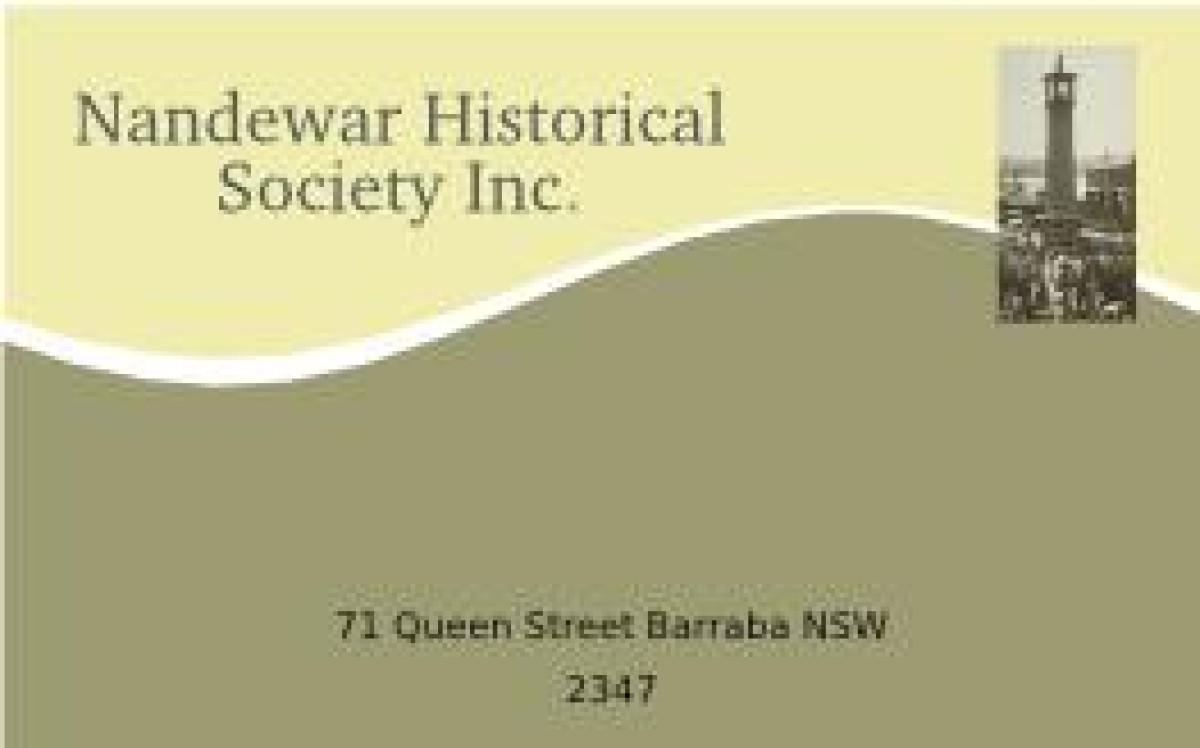History Notes - Henry Williams

History Notes
Before beginning this week's notes I had a call from a Bundarra reader who remembers a family member remarking that when the Bundarra bridge was finished there was just a little gap of one inch at one end - not bad for a bridge that was made in England, pulled to pieces and shipped to Australia. Divided into two bridges before the Bundarra part was carried up the Moonbis and erected at Bundarra with one very small gap:- full credit to Mr Royce and his team of bridge builders.
This week I have continued to read Henry Williams' diary after he arrived in Australia. As mentioned before, he walked up the Hunter Valley with Mr Walker's bullock team and driver and on to the Peel valley and the Moonbi range. After getting safely up the mountains the team rested at a nearby station for a few days before proceeding on to Aberfoil.
Walking along with the bullock team in the next days he remarked on seeing a brown snake and lots of different birds, emus and ducks. Unfortunately, he liked to shoot the birds he saw which would be bad practice these days.
One evening he took his gun and walked off to shoot some ducks - he didn't find any ducks and then got lost trying to get back to where the team was camped. In his effort to get back to camp he stumbled into an aboriginal camp. He quickly withdrew from there when he noticed the large collection of spears, tomahawks and boomerangs in the camp.
Leaving the corroboree, he walked quietly away and soon came across a bullock resting nearby. He planned to stay with the bullock in the hope he might lead him back to his camp - he was disappointed when the bullock saw him and took off. Henry wandered around in the bush until finally the sun came up and he found the camp. He wrote in his diary that this adventure would not be repeated!!
Six weeks after leaving Sydney, Henry Williams arrived at Mr Walker's station and began his station job looking after the stores. It seems that was only part of his job as he was soon doing the gardening, sheep washing and then working in the woolshed. He remarked on the 5th December that he celebrated his birthday without a single letter or good wish.
The diary goes on to describe the beautiful parrots - cockatoos, rosellas, and lories - sadly he had to shoot them when he saw them! He also shot numerous ducks.
After a year at Aberfoil he left to work at Kangaroo Hills for Mr Dangar. At both places he complained about the insects being a nuisance - wood scorpions in his bed, fleas and even spiders bothered him.
Settling in at Kangaroo Hills he found he was storeman as well as helping with jobs such as boiling down sheep, setting baits for dingoes and filling in where needed. On the 18th June, 1851, he was called to a woman in labour but refused to go. He wrote in his diary "I utterly detest these cases" a fact that he carried on through his whole life. While working as Barraba's doctor in the mid 1800s, he always sent his wife to do such jobs!
While at Kangaroo Hills Henry did some exploring in the area -he found some waterfalls and a small amount of gold without getting lost in the bush. Finally, on 30th May, 1852, Henry left Kangaroo Hills and travelled south with a wagon load of wool. This was another long and almost disastrous journey. The weather was wet for most of the way, the bullocks wandered away from the camp most nights, the rivers were flooded and very difficult to cross and then at the top of the Moonbi Range the dray capsized!! The two men spent the next night camped out in the frost before rolling the bales of wool down the mountain and with a little help reloaded the dray and reached Neminga at dark with no food or water.
Thinking that the worst of their trip was over Henry and the bullock driver applied to a nearby station for food without luck. They slept under the dray without any food and the next morning another dray arrived and fed them breakfast. On arrival in Tamworth Mr Levy supplied them with tea and sugar-there was neither flour nor meat available in the town. As it was still raining heavily they crossed the Peel River but the dray soon bogged and the men put in another night lying on the wet ground in the rain.
This was the story for the next few weeks until they finally reached the Hunter Valley.
I shall conclude this lengthy tale at a future date - Henry still had a few battles before he finally settled in Barraba in the 1850's.
